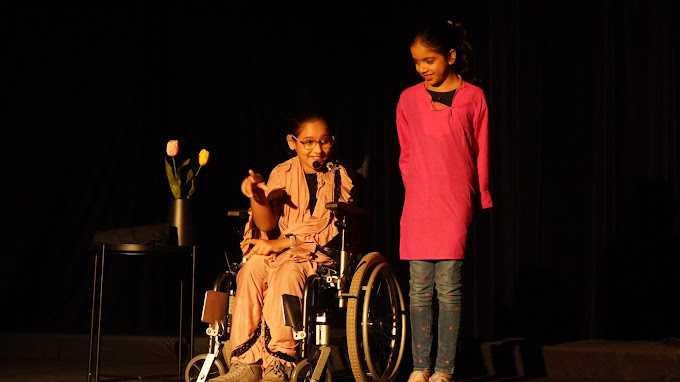Showcase Opportunities And Performances In Youth Acting Classes
Hello, dear readers! Today, I’m eager to explore the vibrant realm of youth acting classes and their significant impact on nurturing emerging writers. As part of Tamasha’s ‘Spotlight On Skill’ initiative, led by Deepika Rajani, we aim to support the aspirations and projects of budding writers from diverse backgrounds. In this article, we’ll highlight various writing programs, presenting the opportunities they offer and helping you discover the ideal fit for your artistic goals.
Introduction
Youth acting classes provide a nurturing environment where young aspiring actors can develop their skills and confidence while exploring the world of performing arts. An integral part of this journey is participating in showcase opportunities and performances, which offer invaluable experiences for young actors to shine on stage and learn how to deliver their best performances.
In this article, we will delve into the benefits of showcase opportunities and performances in youth acting classes, the types of showcases available, how they enhance a young actor’s development, and what parents and students can expect.
The Benefits of Showcase Opportunities
- Building Confidence: Performing in front of an audience helps young actors gain confidence and overcome stage fright. By regularly participating in showcases, they learn to manage their nerves and deliver strong performances.
- Applying Skills: Showcases allow young actors to apply the techniques and skills they’ve learned in class. This practical experience reinforces their learning and helps them see how their hard work pays off on stage.
- Receiving Feedback: Performing in showcases gives young actors the chance to receive feedback from instructors, peers, and audiences. Constructive criticism helps them identify areas for improvement and encourages them to continue honing their craft.
- Networking Opportunities: Showcases often draw in audiences that include family, friends, and industry professionals. This exposure provides young actors with networking opportunities and potential pathways for future projects.
- Experiencing Teamwork: Acting showcases involve collaboration with other students, directors, and crew members. This experience teaches young actors the importance of teamwork and how to work effectively with others in a production setting.
Types of Showcase Opportunities
- Classroom Performances: Many youth acting classes culminate in in-class performances where students can showcase their skills to peers and instructors. These intimate settings offer a supportive environment for young actors to gain experience.
- Theatrical Productions: Some acting schools organize full-scale theatrical productions featuring students. These productions often take place in professional theaters or community venues, providing young actors with real-world experience on a proper stage.
- Monologue and Scene Showcases: Monologue and scene showcases are opportunities for students to perform individual or partnered pieces in front of an audience. This format allows young actors to focus on their delivery and interpretation of specific texts.
- Musical Theater Showcases: For young actors interested in musical theater, showcases that include singing, dancing, and acting provide a comprehensive experience. Students can perform excerpts from well-known musicals, gaining exposure to different aspects of performing arts.
- Improvisational Performances: Improvisation showcases challenge young actors to think on their feet and adapt to unexpected scenarios. These performances help develop quick thinking and creative problem-solving skills.
Enhancing Development Through Showcase Opportunities
- Improving Communication Skills: Performing in showcases helps young actors refine their verbal and non-verbal communication skills. They learn how to convey emotions, deliver lines clearly, and engage with audiences effectively.
- Understanding Characterization: Showcases allow young actors to practice building and portraying characters. Through preparation and rehearsal, they explore character motivations, backgrounds, and nuances, leading to more believable performances.
- Cultivating Creativity: The process of preparing for a showcase encourages young actors to tap into their creativity. They learn to interpret scripts, bring their own perspectives to roles, and experiment with different acting techniques.
- Learning Professionalism: Showcases introduce young actors to the expectations and responsibilities of a professional performance. They learn the importance of punctuality, memorization, and working harmoniously with others.
- Gaining Resilience: Performing life comes with its challenges, such as forgetting lines or technical difficulties. By participating in showcases, young actors develop resilience and learn how to handle unexpected situations with grace.
What Parents and Students Can Expect
- Preparation and Rehearsals: Preparing for a showcase involves memorizing lines, rehearsing scenes, and practicing character development. Parents and students should be prepared for additional rehearsal time outside of class.
- Costumes and Props: Depending on the nature of the showcase, students may need costumes and props. Parents should work with instructors to understand the requirements and ensure students are well-prepared.
- Performance Dates: Showcases typically have scheduled performance dates that parents and students should note in advance. It’s essential to plan schedules around these dates to avoid conflicts.
- Supportive Audience: Attending a young actor’s showcase is an exciting and proud moment for parents and family members. Providing positive encouragement and feedback can boost the young actor’s confidence and motivation.
- Learning from Experience: While showcases offer opportunities for success, they also provide valuable learning experiences for young actors. Mistakes or challenges during performances can be used as lessons for growth and improvement.
Conclusion
Showcase opportunities and performances in youth acting classes are crucial for the development of young actors. They offer hands-on experience, teach essential life skills, and open doors for future opportunities in the performing arts. By participating in showcases, young actors gain the confidence, resilience, and skills needed to pursue their passion for acting and succeed on the stage.
Stay tuned for more insightful blogs on how drama can positively impact children’s lives!





































